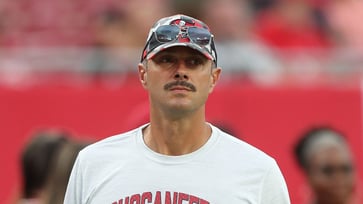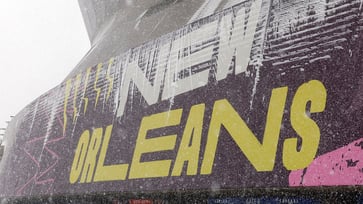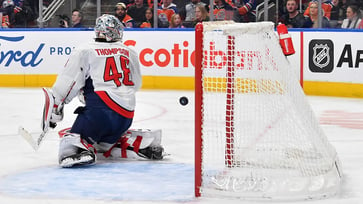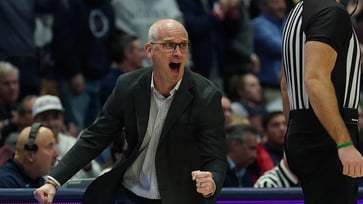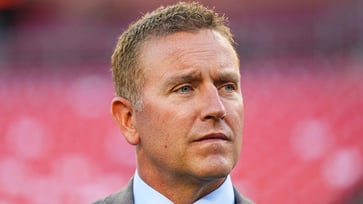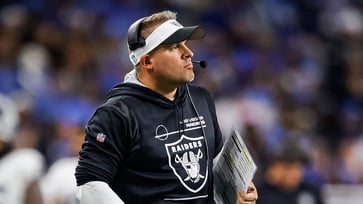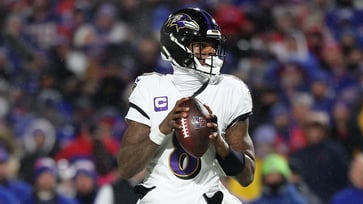The Tragic Life of Peter Edward Rose
My own career was bookended by the late, great Rose in more ways than one.
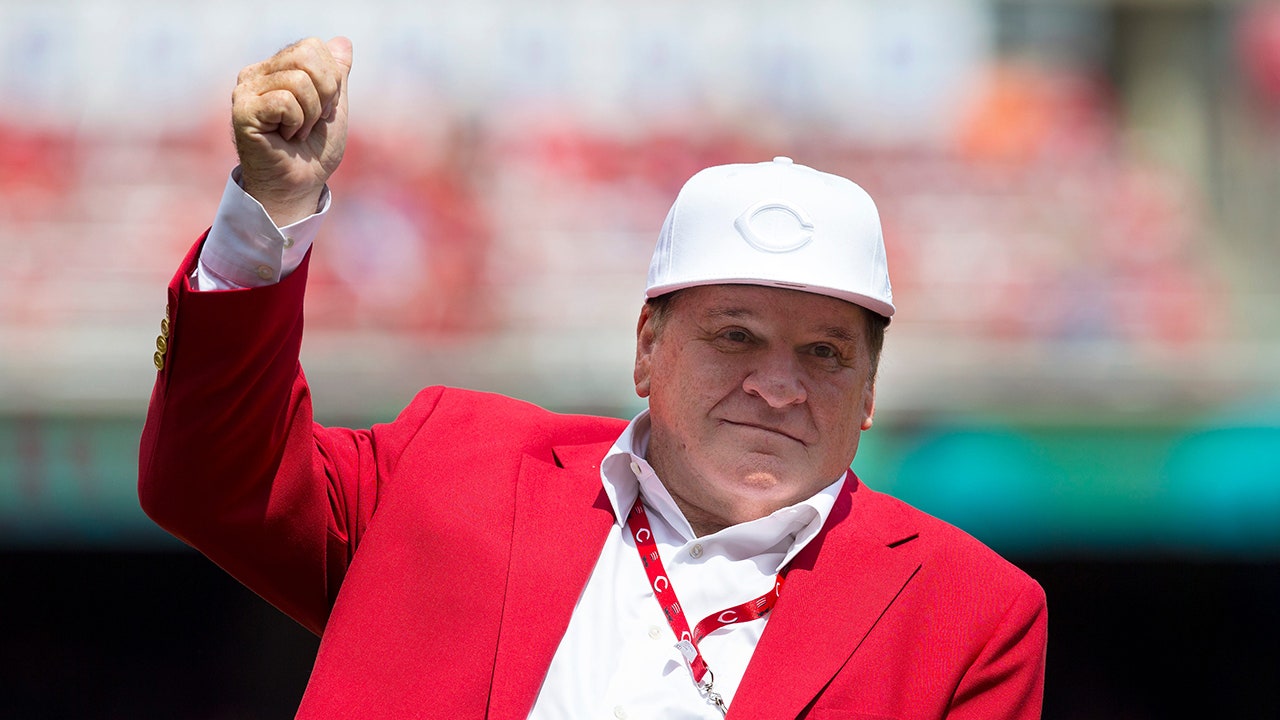
The Major League baseball regular season ended Monday night.
In the top of the 9th inning, Pete Alonso of the New York Mets was grounded out to shortstop, resulting in the end of the second game of a doubleheader between the Mets and the Atlanta Braves. The Braves won the game 3-0, and both teams qualified for the postseason. However, baseball's 162-game regular season schedule had come to an end.
I saw the news while the Mets postgame show was still on in my house.
Pete Rose was dead.
Pete Rose was always present for all 162 baseball games.
My life has been marked by Pete's saga, which has remained a constant presence throughout my youth and early career as a reporter.
As a child, Pete Rose was my first hero after Mr. Rogers and Captain Kangaroo. I admired him as he won two World Series with the Reds, achieved 3,000 hits, and had a remarkable 44-game hitting streak, which was only surpassed by Joe DiMaggio's 56 games.
In 1979, I was devastated when he left Cincinnati for Philadelphia. However, on an August night in 1984, I was ecstatic when he triumphantly returned to Cincinnati as player-manager. In his first at-bat against the Cubs, Pete singled, and his line-drive skipped past Chicago centerfielder Bob Dernier. Pete then headed for second, and Dernier struggled to track down the errant ball. Pete took third, flinging himself into third base with a signature head-first slide.

A cloud of dirt slowly rose from the green artificial turf, resembling wafts of moisture from dry ice. Then Pete stood, leaving a streak of brown soil on his crisp, white uniform from the sliding pit.
Pete's way of expressing his return was 'I'm back.'
I was seated in the Alpine-style red seats at Riverfront Stadium when he broke Ty Cobb's all-time hit record. As a rookie reporter a few years later, I covered his confrontation with umpire Dave Pallone and subsequent 30-day suspension. In 1989 and 1990, I spent numerous months inside and outside of courthouses in Cincinnati and Columbus, covering gambling allegations. This ultimately led to Major League Baseball expelling Pete.
And decades later, I’m still reporting on Pete Rose.
Pete, a local boy from the gritty west side neighborhoods of Cincinnati, captained the legendary "Big Red Machine," arguably the best baseball team of all time. He grew up in a working-class home on Cathcart Street, up a steep slope from the Ohio River. He played for the hometown Cincinnati Reds.
In Greater Cincinnati, when you mention "Pete," it's unnecessary to add "Rose." It's like saying "Pele" in Brazil - everyone knows who you're referring to.

Federal District Judge Carl Rubin of Cincinnati publicly criticized Major League Baseball for having a vendetta against Pete during its gambling inquiry.
People knew about the gambling. The womanizing. Reports of even worse.
The residents of Cincinnati viewed Pete as a reflection of themselves. They admired his playing style, his hard work, and his success in bringing championships and excitement to their city.
Cincinnati was the baseball capital of the world.
Pete was more than just the "hit king" of this Midwestern province. He was its ruler.
Few extracted more from themselves with less to work with than Pete.
Pete lacked muscles and speed, but he was skilled at making throws from third base with his back foot. Despite his limitations, he outplayed everyone else by playing smarter and willing himself to hit and win. To compensate for his slow base running, one commentator once said that Pete "ran like a scalded dog."
Pete is the scalded dog in any footrace, making up for lack of footspeed with grit.
Pete is one of only two players in history to have achieved 4,000 hits in the game. It's a significant accomplishment for a player to get 200 hits in a season, and Pete did this every year as one of his annual traditions. Many talented players go their entire careers without achieving this feat. However, Pete's prolificness is evident when you consider that if you played for 21 consecutive seasons and got 200 hits each year, you would still be 56 hits short of Pete's mark.

Still, here’s a nugget which is even more ridiculous:
Pete holds the all-time records in at-bats (14,053) and plate appearances (15,890), with Carl Yastrzemski of the Boston Red Sox being second behind him in both categories by nearly 2,000 at-bats and plate appearances.
Pete generated more opportunities.
In Pete's world, taking more shots increases the chances of scoring goals.
Of course, Pete isn’t in the Hall of Fame.
All are not associated with baseball's "steroid era."
On Bob Dernier's day, Pete only took an extra base.
This is why everyone clamored to see him play.
I was fortunate to obtain tickets to witness Pete surpass Cobb's record.
The Cox Farm, located near my childhood home in Jacksonburg, Ohio, is owned by James M. Cox, who served as Governor of Ohio, Congressman, and the Democratic nominee for President in 1920. In July 1985, the caretaker of the farm, Ralph Schramm, offered my father 20-plus tickets from Cox Enterprises to a random game in mid-September against the Padres. Despite not being a big baseball fan, Schramm knew we were, and my father accepted the offer.

Pete was close to surpassing Cobb's record by September. However, he tied the record in Chicago. Afterward, the team returned home to Cincinnati to face the Padres. It is likely that Pete will break the record at home.
I was the goalie for the Edgewood High School soccer team that year. We played a home game against Franklin on the night of September 10. We lost – even though we played better than usual. However, most of the players wanted to get off the field as quickly as possible to find out if Pete surpassed Cobb. I raced to the car and turned on the radio. While driving home, Pete flied out in the bottom of the 8th. The Reds lost 3-2. There was no comeback.
That meant Pete might break the record the next night.
And we had tickets.
On the warm evening of September 11, 1985, my Dad distributed soccer team tickets to friends, including some players with whom I was close, as well as the coaches. After school, we hurried through practice and raced to downtown Cincinnati.
In left field, Eric Show of the Padres hit a solid single off Pete.
Hit 4,192 – often pronounced "41-92" in Cincinnati.
We viewed it from the red seats, slightly to the right of home plate.

The game was televised by ESPN and our group was immortalized on videotape, appearing in the stands several times during the game.
San Diego was shut out 2-0 by the Reds, with Pete scoring both runs.
In 1989, I was a college student at Miami University (OH) and worked as a reporter for WKRC Radio in Cincinnati. Although I was young, I was involved in covering the gambling scandal involving Pete. I followed Pete and his attorneys into courthouses, covered press conferences, reported from phone booths near Fountain Square, and even filed some reports for ABC Radio, which was a significant accomplishment for a 20-year-old.
In 1989, the fall of the Berlin Wall and Pete's banishment from baseball were the major stories of the year.
On August 24, 1989, Pete was officially banned from baseball by Commissioner Bart Giamatti. I reported on the press conference where the Reds appointed Tommy Helms, a former teammate of Pete's, as his replacement as manager.
At WKRC, someone proposed we attempt to contact Bob Howsam, the former General Manager and architect of the "Big Red Machine." We had three outdated card-style Rolodexes in the newsroom. I scanned through one of them and discovered Howsam's phone number. I was astonished when he agreed to do an interview.

When he ran the Reds, Howsam was strict about facial hair. He took pride in the cleanliness of the ballpark and rewarded young fans with "Straight-A" tickets if they earned straight A's in school.
I never qualified.
In our interview, Howsam admitted his disappointment in Pete. Despite this, I inquired if he believed Pete should be inducted into the Hall of Fame.
The player with the most-career base hits is crucial to the Hall of Fame's reputation, as Bob Howsam made it clear.
Wow.
On September 1, 1989, I went to my last class of the week, an English class at Miami University's Middletown Campus in the late afternoon. Professor John Heyda distributed a folio for us to read over the weekend and discuss the following week. One particular item caught my attention - "Green Fields of the Mind" by A. Bartlett Giamatti, the Commissioner of Baseball.

Giamatti was a multifaceted individual, with a passion for literature, the arts, and baseball.
In 1977, while serving as President of Yale, Giamatti wrote an essay expressing his disappointment over the conclusion of the baseball season each year.
Giamatti, mourning the Red Sox's failure to make the playoffs, wrote about the rainy Sunday in October, with broken branches, clogged drains, and slick streets.
"Giamatti wrote that baseball is intended to break one's heart."
I hurriedly stuffed the essay into my backpack and dashed to the car. I had to report for duty at WKRC in the Mount Auburn district of Cincinnati to host the late-night, hourly news broadcasts.
Bart Giamatti passed away on Martha's Vineyard from a heart attack, just days after expelling Pete, before I reached Cincinnati.
It was Shakespearean.
I discovered the essay Heyda assigned while carrying my bookbag into the station. I read a portion of it that evening during one of my reports about Giammati's death.
Giamatti wrote that the game starts in spring, when everything else restarts, and it flourishes in summer, taking over afternoons and evenings. However, as soon as the cold rain arrives, it ends, leaving you to confront the fall alone.
In 1989, Giammati passed away, Pete was expelled, and summer was coming to an end.
As the baseball season ends, Pete has also departed.
Pete was truly sentenced to a lifetime ban by baseball, as ruled by Giamatti.

Pete was present for all 162 games this season, just like he often was during his career. However, tragedy struck at the end when Alonso grounded out, resulting in Pete's untimely demise.
In decades, Pete's absence will mark the first postseason without him, leaving his fans to face the fall alone.
I said this is Shakespearean.
The Tragedy of Peter Edward Rose: Exultant highs on the field, grotesque ravines off it.
It breaks your heart.
It is designed to break your heart.
And it did.
sports
You might also like
- Aaron Glenn's hiring as a Jets legend is met with approval from Joe Namath and other Jets legends.
- Klete Keller, an Olympic gold medalist, shares his thoughts on Trump's Jan. 6 pardon: "Something has been restored to me."
- Mahomes discusses Kelce's retirement possibility: "If it's his final game, let's give him a victory."
- Trent Baalke, the general manager of the Jaguars, is 'respectfully separated' from the team as other teams fill similar roles.
- Rams quarterback played through significant rib injury in playoff loss, reveals Matthew Stafford's wife.

